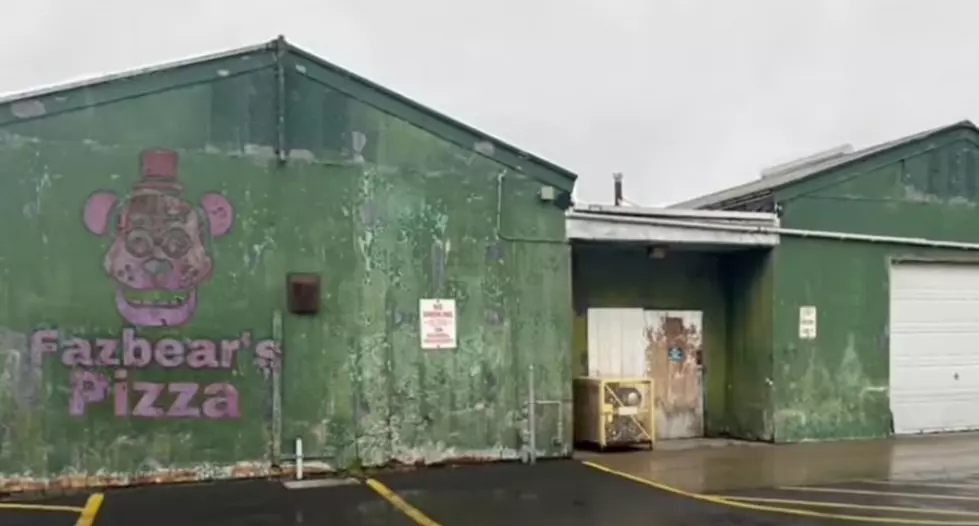
Sen. Chuck Schumer Visits Central New York to Address Prescription Drug Shortage
Less Americans are able to fill their prescriptions and Senate Majority Leader Chuck Schumer warns the problem is only growing worse.
The United States is grappling with a historic prescription drug shortage.
Between 2021 and 2022, prescription drug shortages rose by 30 percent. Senator Schumer notes the problem is continuing into 2023, with at least 301 active shortages reported in the United States at the start of the year.
The prescriptions, he says, range from everyday generics to cancer treatments.
The nation's top senator says the time has long passed to ask questions and Congress needs to act now, because too many lives are now on the line.
Why did Senator Schumer make his pitch in Central NY?
The senator visited Herkimer to lay out his plan to tackle the shortages and demand accountability.
He announced via a press release:
Mohawk Valley hospitals and medical providers across the country are currently suffering from some of the worst drug shortages they’ve ever seen, running low on critically-needed cancer drugs, as well as common generics, drugs used to treat asthma, and antibiotics used to treat infections. With this systematic issue already impacting Upstate NY patients, I am not only calling on the FDA to act immediately and do everything in its power to mitigate this shortage, but I am also urging Congress to take action and solve this issue for good.
Herkimer County Legislature Chairman Vincent J. Bono added the drug shortages afflicting hospitals and medical providers in the Mohawk Valley are afflicting all residents, no matter their economic background.
That is why Herkimer became a symbolic place for Schumer to call upon Congress to support his 4-point plan that will provide "long term legislative solutions that will repair the nation’s drug supply chains once and for all."
What is his plan?
Schumer said the guidelines are meant to help Congress create legislation to best address the drug shortages.
The first step is to increase transparency when it comes to drug shortages and provide insight into what's causing them.
The administration, doctors, hospitals and patients need to know when a shortage is coming, when demand is outpacing supply, where companies are sourcing their raw materials from, when there are safety issues and more.
The second step would be to ensure "there are enough manufacturers producing drugs at enough volume to have reserve and contingency supplies."
The following point would establish improvements in production safety and quality.
Numerous shortages are caused by safety and quality control problems at manufacturing plants, and improving safety and quality standards would help avoid those problems in the first place.
The final step would be to increase the volume of domestic manufacturing. Senator Schumer warns there are too many risks associated with relying on foreign actors. He said, "bringing that supply chain back to the United States will reduce shortages and create good-paying new jobs for Americans."
When will Congress act?
Considering how deeply divided the House and Senate are, it's unknown if our legislators will be able to come to a possible solution in the immediate future.
But what is known is that the nation faces significant consequences should these shortages continue.
Senator Schumer focused on the issues impacting Central New York. He said both Mohawk Valley Health System and Little Falls Hospital of Bassett Health Network have been struggling over the past two years.
He said MVHS "has a list that fluctuates from of 150 to 225 drugs in critical or non-critical short supply, which has spiked from 15 to 30 drugs just a decade ago."
Drug shortages have impacted treatments for asthma, cancer, allergies, addiction, pain and infections.
The senator noted the shortages are deeply affecting the region:
Currently, Little Falls Hospital is struggling to secure supplies of lidocaine, sodium bicarbonate, and epinephrine syringes. Other hospitals across Central New York and the Mohawk Valley have seen shortages in docetaxel, amoxicillin, acetaminophen (Tylenol), ibuprofen (Motrin), and roxanol syringes.
The senator also noted that not all drugs have a generic replacement, and that it takes time to find the perfect therapeutic alternative for prescription drugs that do have alternatives.
Overall, Senator Schumer said action is needed now because the shortages is "creating additional work on Upstate NY’s limited pharmacy resources, requiring pharmacists to be active in identifying (and in many cases forecasting) potential shortages and pivoting to determine suitable therapeutic equivalents and alternative options for patients."
He said relief is needed immediately. According to the American Society of Health System Pharmacists, the nation reported 301 active shortages within the first three months of 2023.
They say that is the highest number of shortages in nearly a decade.




